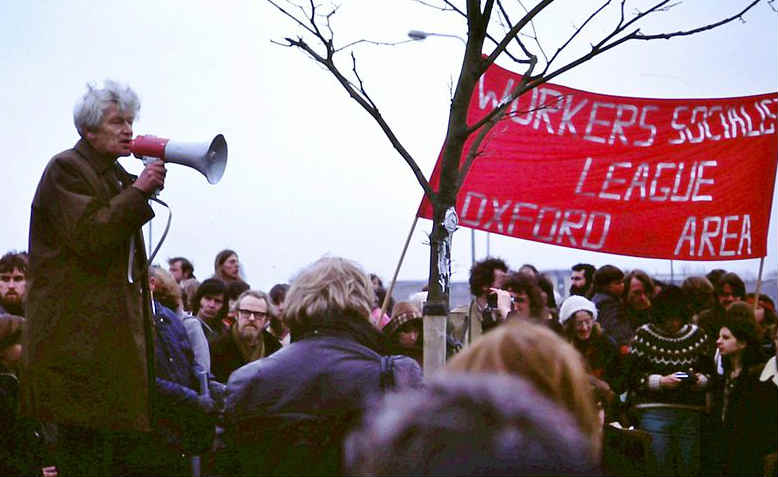 E.P. Thompson speaking at an anti-nuclear weapons rally in Oxford, 1980. Photo: Wikipedia
E.P. Thompson speaking at an anti-nuclear weapons rally in Oxford, 1980. Photo: Wikipedia
Over four decades ago, the Marxist historian called for resistance against the commercialisation of higher education
Back in 1970, the great English Marxist historian, E.P.Thompson, was employed at Warwick University. Warwick was then a new university with a new way of doing things. Thompson didn’t like what he saw one little bit, and said so with characteristic eloquence, dubbing Warwick the ‘Business University’.
As Thompson glimpsed, Warwick was the forerunner of the neoliberal university of today, now set to suffer yet another dose of neoliberalism should the Higher Education Bill become law. So check out these 5 short passages by Thompson from 1970 and ask yourself if they sound familiar:
1The “dominant elements in the administration of a university had become so intimately enmeshed with the upper reaches of consumer capitalist society that they are actively twisting the purposes and procedures of the university away from those normally accepted in British universities, and thus threatening its integrity as a self-governing academic institution…”
2“a new kind of vice-chancellor…might see himself not so much as an academic organizer and arbitrator as the managing director of a business enterprise.”
3Thompson noted recommendations for “an increase in the ratio of students to staff. (To a university teacher this means more work or poorer teaching to larger groups; the student’s ‘economy’ is to find staff less available.)”
4“It might even be possible to adopt some of the seedier methods of certain business firms, by replacing face-to-face human relations and formal committee decisions by telephonic exchanges [for which read email today! -DP] and a security-conscious administration, who were told to mark certain staff and students as ‘disloyal’ to the organisation.”
5And finally this: “It might be thought that we have here already, very nearly, the ‘private university,’ in symbiotic relationship with the aims and ethos of industrial capitalism, but built within a shell of public money and public legitimation.”
Thompson was intimately involved in resisting all this at Warwick by supporting the student protests there. Eventually, he had enough and resigned. However, Thompson pointed to the answer – student resistance fully supported by academic staff, and the resistance of academic staff fully supported by students. This is how to save the university.

